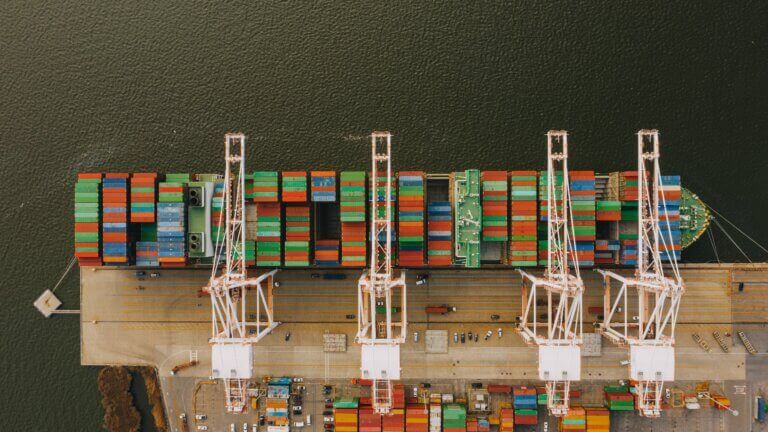Blog

In Part I of our series on the VAT Evolution, we explored the motivations of tax authorities and governments around the world to embrace digitization and technology of a method of increasing revenue collection and shrinking tax gaps. Then in Part II, Three Focus Areas for VAT we discussed some of the priority concerns for […]

Increased visibility into, and control over, taxpayer financial and trade data is the key benefit highlighted by governments that have introduced continuous transaction controls (CTC) regimes. Its importance cannot be overstated. Transactional data cleared by or exchanged through a tax administration authorised platform becomes the new source of truth for tax authorities to assess the […]

For businesses headquartered or operating in Brazil, the constantly shifting Nota Fiscal compliance regulations are a well-known pain point. The Sistema Público de Escrituração Digital (SPED) reporting rules debuted in 2008 to digitize paper invoices and records, and the rules continue to change frequently, creating complexity and risk. These difficulties are deepened for businesses that […]

Introduction: Brazil is the world’s ninth largest economy and a country with a well-earned reputation of being perhaps the most complex tax environment on Earth. The sheer number of laws and mandates, the constant change and the risk of non-compliance resulting in significant penalties and fines is omnipresent. In this three-part blog series, we’ll look […]

Introduction: Brazil is the world’s ninth largest economy and a country with a well-earned reputation of being perhaps the most complex tax environment on Earth. The sheer number of laws and mandates, the constant change and the risk of non-compliance resulting in significant penalties and fines is omnipresent. In this three-part blog series, we’ll look […]

Introduction: Brazil is the world’s ninth largest economy and a country with a well-earned reputation of being perhaps the most complex tax environment on Earth. The sheer number of laws and mandates, the constant change and the risk of non-compliance resulting in significant penalties and fines is omnipresent. In this three-part blog series, we’ll look […]

Although Brazil is known for its complex tax laws that make compliance a difficult task in the country, it is undeniable that the Continuous Transaction Control (CTC) system implemented more than a decade ago is one of the most stable in the world. However, even a sophisticated CTC system continues to evolve and mature, and […]

In the past five years, transaction automation platform vendors who embraced e-invoicing and e-archiving compliance as integral to their services grew on average approximately 2.5 to 5 times faster than the market. Two decades of EU e-invoicing: many options, different models Until 1 January 2019, when Italy became the first European country to mandate B2B […]

The Government Accountability Office (GAO), a U.S. Congress watchdog, published a report evaluating the IRS’s approach to regulating virtual currency (crypto) and the guidance it has offered the public. The GAO’s Recommendation However, a portion of the report was directed at the IRS and the Financial Crimes Enforcement Network (FinCEN), a bureau of the U.S. […]

What’s your digital transformation strategy? Whether you’re in IT, finance, tax or the executive suite, if that strategy doesn’t include tax, you may be overlooking a huge source of risk – and strategic benefit. It’s time to consider launching a conversation about tax in a digitally transforming world. Which is why we’ve created […]

What’s your digital transformation strategy? Whether you’re in IT, finance, tax or the executive suite, if that strategy doesn’t include tax, you may be overlooking a huge source of risk – and strategic benefit. It’s time to consider launching a conversation about tax in a digitally transforming world. Which is why we’ve created […]

What’s your digital transformation strategy? Whether you’re in IT, finance, tax or the executive suite, if that strategy doesn’t include tax, you may be overlooking a huge source of risk – and strategic benefit. It’s time to consider launching a conversation about tax in a digitally transforming world. Which is why we’ve created […]

The following is an excerpt from “Trends in Continuous Global VAT Compliance,” the 11th edition of the industry’s most comprehensive guide to e-invoicing, e-archiving and VAT reporting. The full report is available for download. To reduce the VAT gap, countries are pushing taxable organizations to comply with VAT requirements and enforcing different types of legal […]

Companies are dealing with a fundamental shift in the way they do business with trading partners. In a rapidly increasing number of countries, there’s a third party inserting itself into every transaction. It’s the government, and it’s wedging its way into every order a company ships or receives. In an effort to close a massive […]

Brazil is often viewed as one of the most complex tax jurisdictions in the world. But, at the same time, it has been very successful in automating tax authority controls, and in doing so has replaced paper invoices with electronic invoices automating their exchange through clearance platforms. While the ambitious Brazilian plans to simplify the […]

Clearance-model e-invoicing will sweep the globe because it works – at least for tax administrations. With the VAT gap opening to more than half a trillion dollars worldwide, governments around the world are likely to follow the Latin American model of tax authorities inserting themselves into transactions. A new report from Bruno Koch at industry […]

The great corporate awakening Many corporations that previously saw e-invoicing mandates as a developing country problem are now realizing that invasive transaction-based digital tax controls are popping up everywhere around the world. Teams of experts and executives across finance, IT, tax and other functions are being pulled together by leading enterprises to define ways to […]

SAP S/4HANA is the promised land for SAP customers: an entire suite of ERP functionality in one place with a single data store. The ability to run all ERP capabilities, both from SAP and non-SAP systems, from a single source represents delivery of a model IT professionals and SAP administrators have sought for years. Getting […]